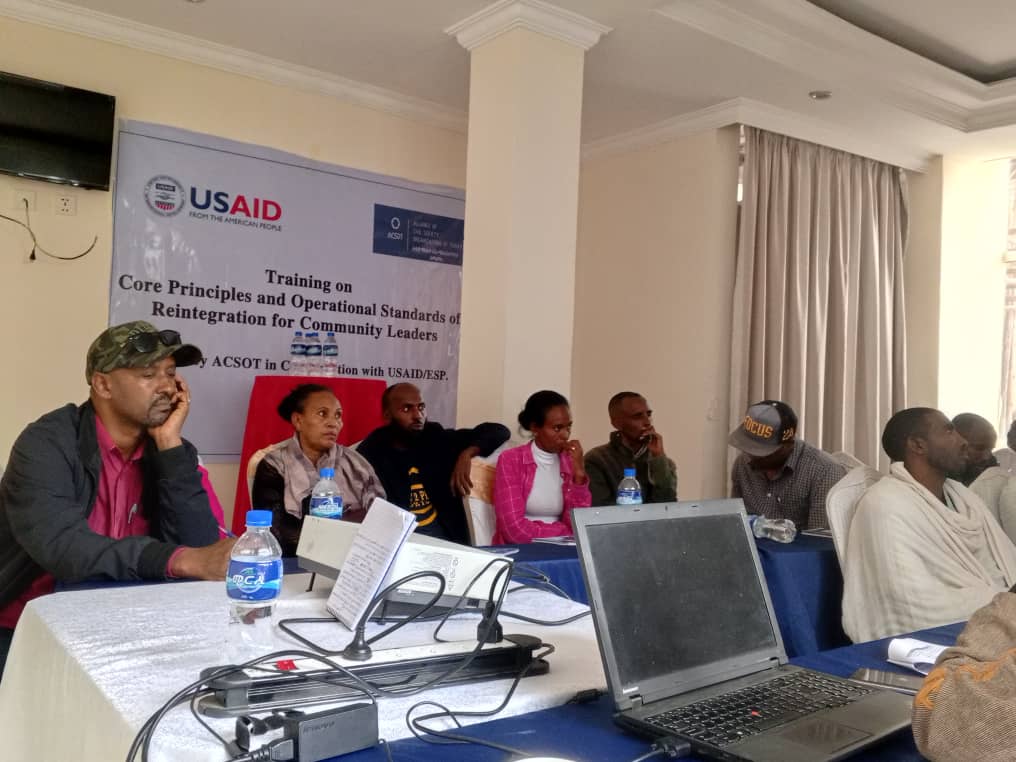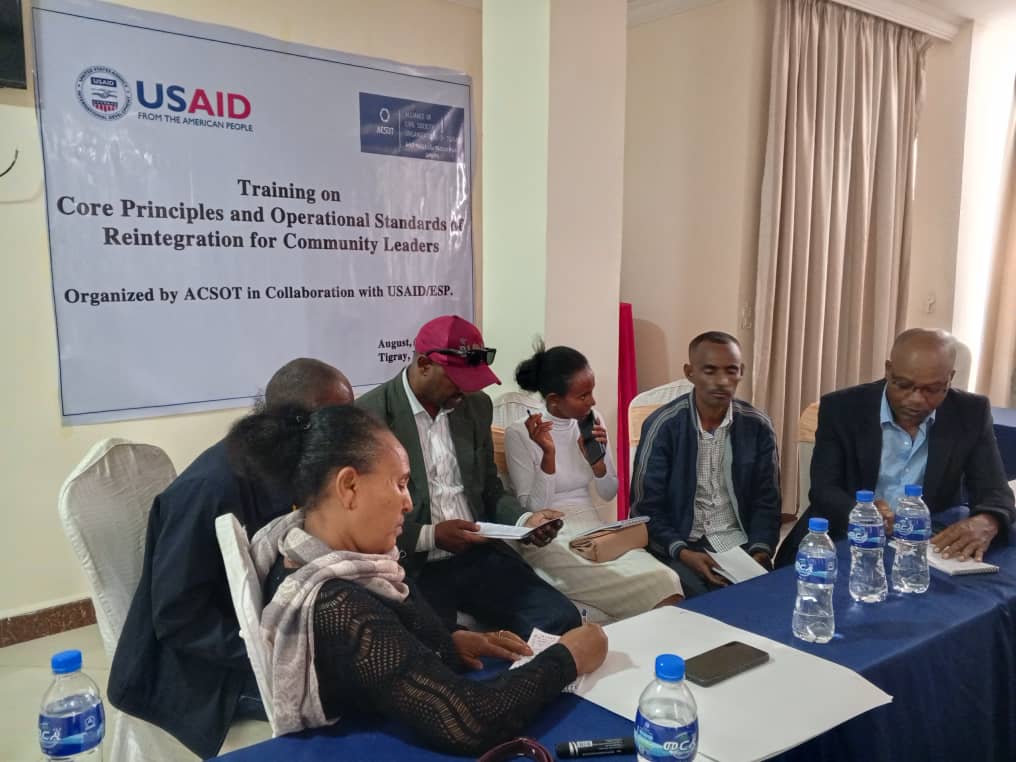- Egri Mitkal Building
- info@acsot.org
- +251911362042
- yared@acsot.org
Organized by ACSOT in Collaboration with USAID/ESP
In a significant step towards enhancing the reintegration of ex-combatants into civilian life in Tigray, 40 participants from various organizations, including the National Rehabilitation Commission of Tigray (NRCT), Women’s Association of Tigray (WAT), Tigrian Youth Association (TYA), Civil Society Organizations (CSOs), Community Based Organizations (CBOs), the Commission of Patriots of Tigray (CPT), and the Association of Disabled Fighters of Tigray (ADFT), as well as Religious Leaders and other stakeholders participated in a two-day training workshop focused on core principles and operational standards at Mekelle’s Desta Hotel.
The event was organized by the Alliance of Civil Society Organizations of Tigray (ACSOT) in collaboration with USAID/ESP. It aimed to address the pressing challenges faced by society and the reintegration of ex-combatants.

Reintegration is a complex process that requires an understanding of various international experiences, particularly as many ex-combatants struggle with issues such as trauma, disabilities, and societal perceptions.
During the training, participants identified several key issues impacting reintegration. Many ex-combatants expressed dissatisfaction with their treatment in society and lamented unfulfilled promises made during their transition. Discrimination among ex-combatants was highlighted, with some benefiting from opportunities while others received little to no support. Such challenges could hinder the reintegration process for those still struggling to integrate into society.

The need for comprehensive solutions was emphasized, including:

Discussions also highlighted the importance of reconciliation efforts. Addressing grievances stemming from past conflicts, particularly among families affected by loss, was deemed crucial for healing communities. Participants advocated for participatory justice and human rights to foster a culture of understanding and acceptance.
The group discussions underscored the necessity of a multifaceted approach to reintegration, emphasizing conflict resolution strategies, promotion of inclusivity in leadership roles, and experience-sharing sessions between past and newly disabled ex-combatants to foster mutual support and understanding.
Participants called for holistic support systems that encompass addiction treatment and safeguards against the political exploitation of ex-combatants. Additionally, religious leaders emphasized the role of religious institutions in providing free services to ex-combatants, leveraging the rich social capital embedded in Tigray’s religious and cultural wisdom.
The cultural values of Tigray—such as cooperation, respect for others, conflict resolution techniques, hard work, hospitality for outsiders, and a legacy of ancient civilization like Axum—were recognized as vital assets in promoting community solidarity and support for reintegration.
As the training concluded, it became clear that successful reintegration requires collaboration among government entities, NGOs, and community members. Policies must be developed with grassroots input to ensure they resonate with societal needs. Continuous support and engagement are essential to breaking the cycle of conflict and fostering a sustainable reintegration process for ex-combatants.
The workshop not only provided valuable insights but also laid the groundwork for future initiatives aimed at creating a more inclusive and supportive environment for all members of the community.



The Alliance of Civil Society Organizations of Tigray (ACSOT) is a non-governmental, non-profit, non-partisan and multi-sector regional CSOs consortium founded in 2007 G.C. and re-registered as per the proclamation of CSOs Proclamation No. 1113/2019 as an Ethiopian Regional consortium. Currently, ACSOT embraces 72 national and regional CSOs operating allover Tigray.
Leave a Reply
You must be logged in to post a comment.